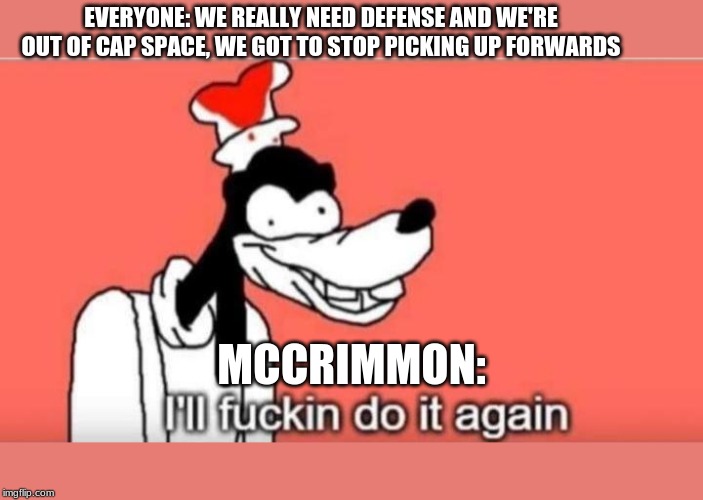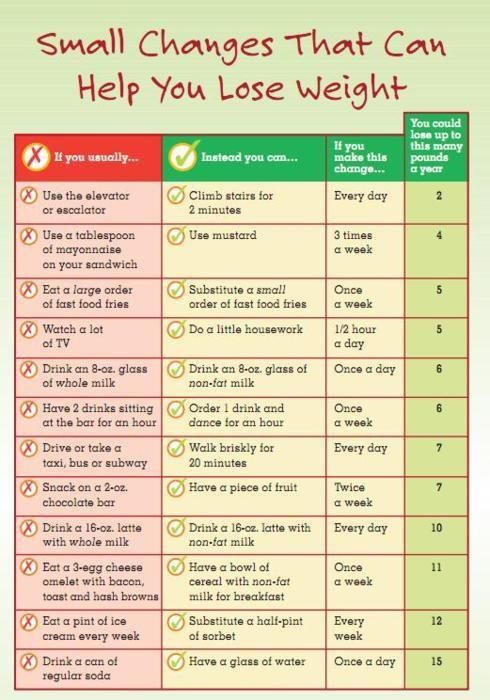After divorce feelings
Why It's Natural to Feel Lost After Divorce (and How to Find Your Way)
Getting through a divorce and healing afterward is possible, even if you currently feel like you’re adrift in a sea of uncertainty.
Feeling lost after a divorce is natural and common. You might feel disconnected or sad, even if you wanted the relationship to end.
There’s also the practical side of it. You may have to find a new place to live or adapt to a new lifestyle. If children are involved, you may be going through the custody process and providing extra emotional support for your little ones.
But it’s possible to overcome this emotional pain, even if you’re having a difficult time right now. The first step may be understanding why you’re feeling lost after the divorce.
Yes, it is common, natural, and valid. A divorce can be an emotionally significant life event. It might feel similar to grieving the loss of a loved one.
You may be thinking, “I wanted the divorce, so why am I so sad?” But grieving can happen even if you made the decision to part ways. You’re leaving a part of your life behind.
If you made the decision to leave, you might be facing remorse or guilt. Perhaps you were still in love but thought the relationship didn’t work. Maybe you fell out of love and feel conflicted about no longer wanting what you once dreamed of.
If you didn’t want the divorce, you may feel unprepared for the change. You could also have a hard time accepting something that you feel you have no control over.
Regardless of whether you sought the divorce or not, you may also find yourself feeling lonelier if the end of the relationship meant distancing yourself from a social network: your spouse’s family, joint friends, or neighbors. Loneliness can sometimes lead to symptoms of depression.
All of these reactions and many more are natural when you’re going through a breakup or divorce.
And like other forms of grief, it can take some time to come to terms with the change of status and move on.
How long sadness or grief lasts after a divorce depends on many factors, including your support network and emotional resources. But it’s feasible in every case.
But it’s feasible in every case.
Going through a divorce looks different for everyone. But it’s possible to find yourself again by connecting with things and people that are important to you.
These tips may help you start your post-divorce journey.
Consider taking on hobbies
After a divorce, you may find yourself wondering how to spend your time. The time you once spent with your partner is now time you can use to find yourself.
Finding new hobbies or reconnecting with old ones can keep your mind busy, your heart smiling, and your focus on yourself.
Consider exploring questions like:
- What do you like to do?
- What are you passionate about?
- What do you want to try that you’ve always wanted to but never had the time before?
Your choices will be entirely up to you, but some suggestions for hobbies include:
- Finding the artist within. Art, such as drawing or painting, might help you express yourself if you’re finding it difficult to do so after a divorce.
 Art therapy can also help with anxiety symptoms.
Art therapy can also help with anxiety symptoms. - Expressing yourself on paper. Writing can be a way to work through your emotions. Try poetry or other forms of creative writing. Journaling can also help.
- Getting active. Exercise like yoga, running, cycling, or dance may help if you’re living with depression after a divorce.
- Building something. You may feel as if something has just broken apart. Working on creating something from scratch, like a dollhouse or model airplane, may help you regain perspective and hope after ending a marriage.
- Creating a tribute. Sometimes, you need closure, and tributes can help with this. Consider creating a ritual or object that signifies what the relationship meant to you. You can keep it, give it away, or destroy it afterward. It may work as a cathartic exercise.
Try doing something out of the ordinary
After a divorce, a part of you might miss the familiarity of your routines. This is natural. You might feel tempted to follow the same ones for a while. But in some cases, this could remind you of your loss.
This is natural. You might feel tempted to follow the same ones for a while. But in some cases, this could remind you of your loss.
To find your way back after a divorce, you might try changing some routines to discover if there’s something else you might enjoy doing. This could be an opportunity to try — and like — something new.
You might start with minor steps like:
- Changing your habits. It’s natural to sometimes pick up on the habits of the people you live with, sometimes adjusting your own to accommodate another person. You could start with something small like trying tea instead of coffee in the morning or sleeping on a different side of the bed.
- Redecorating. If you’re not moving to a new place, consider changing up your surroundings and filling your space with your favorite colors and textures. You could move furniture around if the mood strikes or create an accent wall.
- Taking a class. What about learning something new or spending some time in a classroom? Some community centers have a selection of affordable courses available to the public, from art to history classes.
 There are also virtual options.
There are also virtual options.
Organizing and purging your belongings could help
Feeling lost after a divorce could come from being in the same environment but starting a new life.
You may be using the same furniture or decor, for example. Photos can also hold sentimental value and may serve as a painful reminder of your divorce.
Consider doing inventory and reorganizing some of your belongings to decide what you want to keep and what needs to go.
Try setting goals
Setting goals can be a way to take the first steps and measure progress. It could also help you focus on something besides the divorce.
You could start by setting smaller goals and then working yourself up to more complex ones.
For example, you could set the goal of waking up at a certain time and making your bed. Or you could decide you want to connect with one friend or relative every day for the next month.
When setting bigger goals, it might be a good idea to break them down into smaller actions.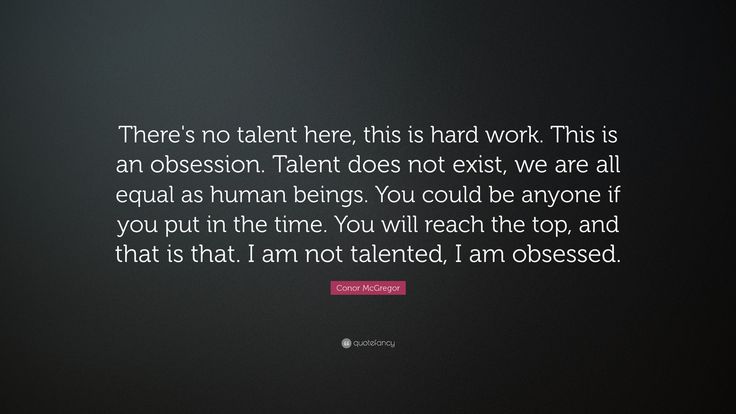
For example, if your goal is to run a 5K, you could set these smaller goals:
- exercise for 10 minutes for a month
- walk 1K
- walk 3K
- walk 5K
- run for 10 minutes
- run for 20 minutes
- run for 30 minutes
- run for 40 minutes
- finish a 5K
Your progression may differ depending on your end goal and personal circumstances.
Consider embracing alone time
Everyone’s different. You may feel you need to be with other people or you might feel like staying home alone.
But staying alone isn’t the same as enjoying being by yourself. If you feel lost after your divorce, it may help you to reconnect with your true self.
This could start with spending more time exploring the things you enjoy and reconnecting with your own thoughts.
Consider taking a solo trip to somewhere new. You could take a daytime road trip to the next town over, for example. It could be going to a new restaurant by yourself.
Engaging in meditation practice may also help you enjoy alone time while helping you manage painful emotions and negative thoughts.
If you’re feeling lost, confused, sad, or you’re having a hard time coping, reaching out for professional support might help.
A mental health professional can provide a safe space to talk about your feelings and offer resources to develop coping skills that can help you feel better.
Ending a relationship and going through a divorce can be an emotional event. It’s natural to feel lost and nervous about what comes next. You may ask yourself, “Where do I go from here?”
Things like returning to old hobbies, trying something new, and dedicating time to yourself may help you find your way back from the divorce.
It may be helpful to think of your post-divorce life as a new beginning, not an end. Things will get better. You may just need to take it one step at a time.
Why It's Natural to Feel Lost After Divorce (and How to Find Your Way)
Getting through a divorce and healing afterward is possible, even if you currently feel like you’re adrift in a sea of uncertainty.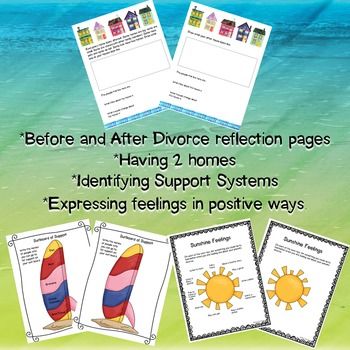
Feeling lost after a divorce is natural and common. You might feel disconnected or sad, even if you wanted the relationship to end.
There’s also the practical side of it. You may have to find a new place to live or adapt to a new lifestyle. If children are involved, you may be going through the custody process and providing extra emotional support for your little ones.
But it’s possible to overcome this emotional pain, even if you’re having a difficult time right now. The first step may be understanding why you’re feeling lost after the divorce.
Yes, it is common, natural, and valid. A divorce can be an emotionally significant life event. It might feel similar to grieving the loss of a loved one.
You may be thinking, “I wanted the divorce, so why am I so sad?” But grieving can happen even if you made the decision to part ways. You’re leaving a part of your life behind.
If you made the decision to leave, you might be facing remorse or guilt. Perhaps you were still in love but thought the relationship didn’t work.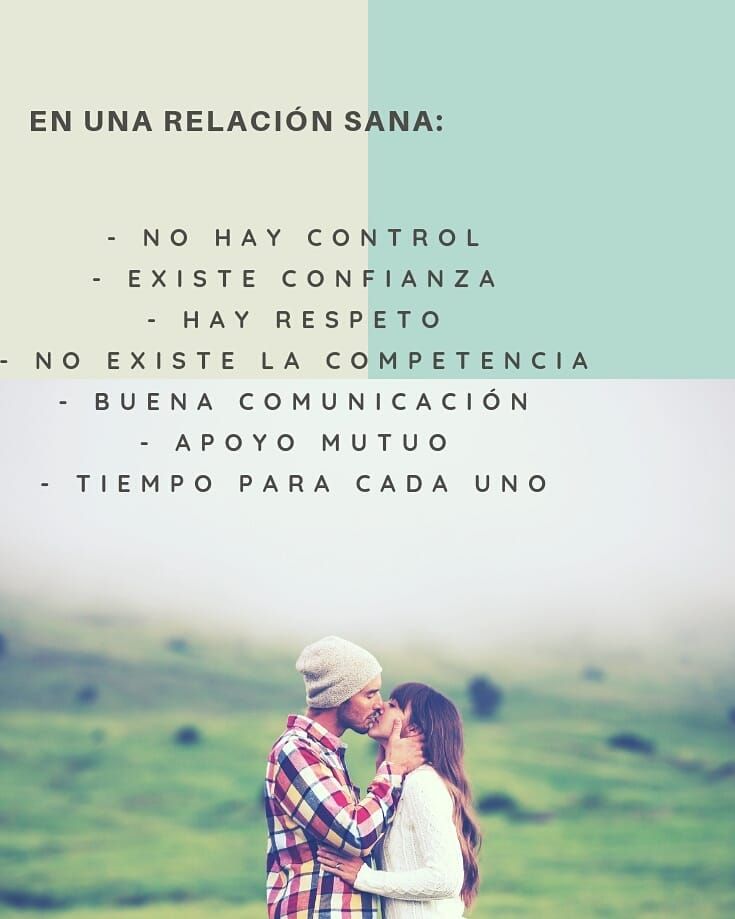 Maybe you fell out of love and feel conflicted about no longer wanting what you once dreamed of.
Maybe you fell out of love and feel conflicted about no longer wanting what you once dreamed of.
If you didn’t want the divorce, you may feel unprepared for the change. You could also have a hard time accepting something that you feel you have no control over.
Regardless of whether you sought the divorce or not, you may also find yourself feeling lonelier if the end of the relationship meant distancing yourself from a social network: your spouse’s family, joint friends, or neighbors. Loneliness can sometimes lead to symptoms of depression.
All of these reactions and many more are natural when you’re going through a breakup or divorce.
And like other forms of grief, it can take some time to come to terms with the change of status and move on.
How long sadness or grief lasts after a divorce depends on many factors, including your support network and emotional resources. But it’s feasible in every case.
Going through a divorce looks different for everyone. But it’s possible to find yourself again by connecting with things and people that are important to you.
But it’s possible to find yourself again by connecting with things and people that are important to you.
These tips may help you start your post-divorce journey.
Consider taking on hobbies
After a divorce, you may find yourself wondering how to spend your time. The time you once spent with your partner is now time you can use to find yourself.
Finding new hobbies or reconnecting with old ones can keep your mind busy, your heart smiling, and your focus on yourself.
Consider exploring questions like:
- What do you like to do?
- What are you passionate about?
- What do you want to try that you’ve always wanted to but never had the time before?
Your choices will be entirely up to you, but some suggestions for hobbies include:
- Finding the artist within. Art, such as drawing or painting, might help you express yourself if you’re finding it difficult to do so after a divorce.
 Art therapy can also help with anxiety symptoms.
Art therapy can also help with anxiety symptoms. - Expressing yourself on paper. Writing can be a way to work through your emotions. Try poetry or other forms of creative writing. Journaling can also help.
- Getting active. Exercise like yoga, running, cycling, or dance may help if you’re living with depression after a divorce.
- Building something. You may feel as if something has just broken apart. Working on creating something from scratch, like a dollhouse or model airplane, may help you regain perspective and hope after ending a marriage.
- Creating a tribute. Sometimes, you need closure, and tributes can help with this. Consider creating a ritual or object that signifies what the relationship meant to you. You can keep it, give it away, or destroy it afterward. It may work as a cathartic exercise.
Try doing something out of the ordinary
After a divorce, a part of you might miss the familiarity of your routines. This is natural. You might feel tempted to follow the same ones for a while. But in some cases, this could remind you of your loss.
This is natural. You might feel tempted to follow the same ones for a while. But in some cases, this could remind you of your loss.
To find your way back after a divorce, you might try changing some routines to discover if there’s something else you might enjoy doing. This could be an opportunity to try — and like — something new.
You might start with minor steps like:
- Changing your habits. It’s natural to sometimes pick up on the habits of the people you live with, sometimes adjusting your own to accommodate another person. You could start with something small like trying tea instead of coffee in the morning or sleeping on a different side of the bed.
- Redecorating. If you’re not moving to a new place, consider changing up your surroundings and filling your space with your favorite colors and textures. You could move furniture around if the mood strikes or create an accent wall.
- Taking a class. What about learning something new or spending some time in a classroom? Some community centers have a selection of affordable courses available to the public, from art to history classes.
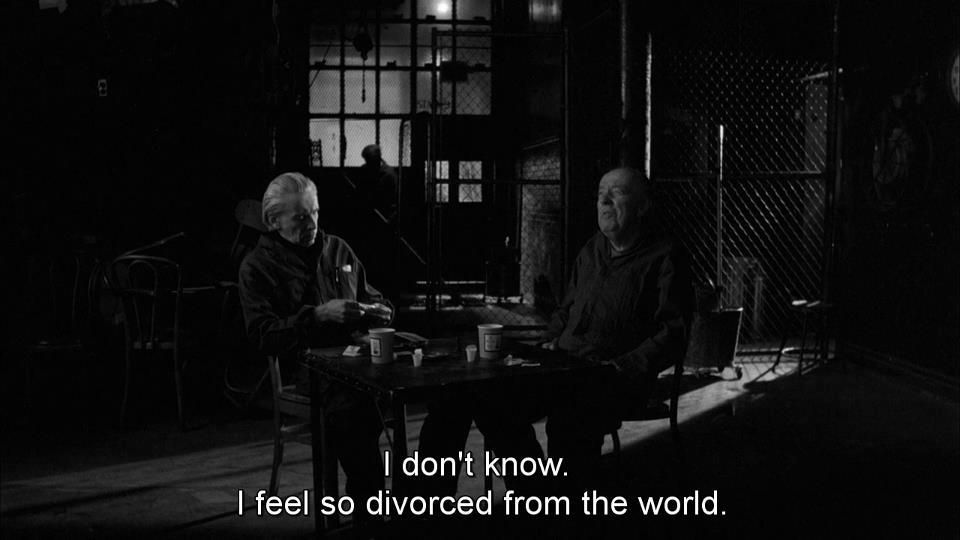 There are also virtual options.
There are also virtual options.
Organizing and purging your belongings could help
Feeling lost after a divorce could come from being in the same environment but starting a new life.
You may be using the same furniture or decor, for example. Photos can also hold sentimental value and may serve as a painful reminder of your divorce.
Consider doing inventory and reorganizing some of your belongings to decide what you want to keep and what needs to go.
Try setting goals
Setting goals can be a way to take the first steps and measure progress. It could also help you focus on something besides the divorce.
You could start by setting smaller goals and then working yourself up to more complex ones.
For example, you could set the goal of waking up at a certain time and making your bed. Or you could decide you want to connect with one friend or relative every day for the next month.
When setting bigger goals, it might be a good idea to break them down into smaller actions.
For example, if your goal is to run a 5K, you could set these smaller goals:
- exercise for 10 minutes for a month
- walk 1K
- walk 3K
- walk 5K
- run for 10 minutes
- run for 20 minutes
- run for 30 minutes
- run for 40 minutes
- finish a 5K
Your progression may differ depending on your end goal and personal circumstances.
Consider embracing alone time
Everyone’s different. You may feel you need to be with other people or you might feel like staying home alone.
But staying alone isn’t the same as enjoying being by yourself. If you feel lost after your divorce, it may help you to reconnect with your true self.
This could start with spending more time exploring the things you enjoy and reconnecting with your own thoughts.
Consider taking a solo trip to somewhere new. You could take a daytime road trip to the next town over, for example. It could be going to a new restaurant by yourself.
Engaging in meditation practice may also help you enjoy alone time while helping you manage painful emotions and negative thoughts.
If you’re feeling lost, confused, sad, or you’re having a hard time coping, reaching out for professional support might help.
A mental health professional can provide a safe space to talk about your feelings and offer resources to develop coping skills that can help you feel better.
Ending a relationship and going through a divorce can be an emotional event. It’s natural to feel lost and nervous about what comes next. You may ask yourself, “Where do I go from here?”
Things like returning to old hobbies, trying something new, and dedicating time to yourself may help you find your way back from the divorce.
It may be helpful to think of your post-divorce life as a new beginning, not an end. Things will get better. You may just need to take it one step at a time.
What happens after a divorce
Olga Selivanova
single
Author profile
Divorce is often an unpleasant experience.
We asked Tinkoff Magazine readers how they got divorced and why it happened. We collected their stories about what you can face in the process of divorce and what feelings you can experience after everything is over. It turned out that everything is not so terrible, and when there is a certificate of divorce on hand, life is only gaining momentum.
These are community reader stories. Collected into one material, carefully edited and formatted according to editorial standards.
Remembrance No. 1
“When I left the registry office, a lump arose in my throat from the situation” Ilya Bondarenko
did it
There was no funny thing in the divorce process. But it was unpleasant. When I left the registry office, a lump arose in my throat from the situation. It was so sad that for about 40 minutes I couldn't say anything - even when I tried. It was very painful to do so.
Then everything suddenly went away, and I became more or less normal.
Memory No. 2
“I experienced a personal tragedy: my family fell apart” Mrs. Smith
proud of herself
Of course, it was not funny enough. We got divorced on good terms, but I experienced a personal tragedy: my family fell apart. This is one of the saddest events in my life.
How to get free psychological help: 11 support centers
It's over now. But I still look back and wonder how that frightened young girl could be so brave and dare to do all this. Although only three years have passed since then...
Memory No. 3
"We just put an end to this story" Hunt86
remembers that everything will pass
: they just did everything and put an end to this story. It happens.
I think that everything went smoothly for us, there are stories that are much worse. Although a divorce by itself, even if it is on your initiative, is still a very unpleasant thing. For me, this is a difficult experience, even after several years.
For me, this is a difficult experience, even after several years.
Memory No. 4
“I realized that I need to live on” Astra Aspera
walked and admired the beauty Oddly enough, the Impressionist paintings had a healing effect: I realized that I needed to live on and not turn away from the beauty and ugliness of the world. It's just life, and divorce is a possible part of it.
Memory No. 5
"It was sad and funny at the same time" V
met my mother-in-law in court
We got divorced in court. At the first meeting, the ex-husband's mother appeared as a representative of the defendant. It was sad and funny at the same time - and made me understand who I lived with all these years.
Memory No. 6
“After the divorce, I seemed to have escaped from a psychological vacuum” Cocoa with marshmallow
regrets nothing
It happened just as I thought: after the divorce, I seemed to have escaped from a psychological vacuum and constant neurosis.
Changed activities in a year. A year later, she bought an apartment, and two years later she moved to live in Germany.
Well, the ex-husband still sings, hangs out and tells everyone that he is very successful and busy. Although he lives with his mother at the age of 37.
Memory No. 7
“Everything got better after the divorce” Cat mother
now happily married
The date of the divorce fell on my birthday. I didn't care, just to get rid of this person as soon as possible.
Everything got better after the divorce. I bought an apartment in a new building with a mortgage and closed it ahead of schedule. She married an intelligent thrifty person - they have been together for five years.
Memory No. 8
“I want to avoid these unpleasant moments in the future” user1723894
was not disappointed in my ex-husband And in the evening, the former mother-in-law called and began to demand $4,000! Allegedly, this is her personal money, and I have to return it to her.
Let me explain: not even my mother-in-law, but my husband's sister gave us money for the wedding. At first, the ex-husband did not want to take this gift, but they put pressure on him. Nobody gave me anything. We spent the money jointly by agreement.
My ex-husband had no claims against me. And as soon as his mother began to extort money, I immediately called him and complained about my ex-mother-in-law. He resolved the issue - there were no more extortions.
/divorce-property/
"Now I can't leave with nothing": 9 morelegal advice on the division of property in a divorce
I was very uncomfortable with this situation. Ex-husband too, because his mother gets into his affairs and does dirty things. The proverb “an apple does not fall far from an apple tree” does not work in this case: how nobly the ex-husband acted and how the ex-mother-in-law acted like a pig!
I want to avoid these unpleasant moments in the future. Therefore, two options remain for me: either cohabitation or a marriage contract.
Memory No. 9
“I decided to celebrate this wonderful news on the weekend” Zalina Dalgatova
celebrated
The most pleasant moment was when a photo of the divorce certificate came to WhatsApp.
I worked two jobs and decided to celebrate this great news over the weekend. But my friends made me come to Kitai-Gorod the same day to go to a bar. I saw and heard them while still in the passage: a song by Stas Mikhailov was playing from their mobile.
No, though. It was even more pleasant to answer the collectors that I no longer have anything to do with the debts of my ex-husband. It sounded like music.
/prava/razvod/
Your rights in a divorce
Have you experienced a divorce too? Tell us how it was and become the hero of the next article Stories of separation from ex-spouses
Tell your story
How to survive a divorce? Psychologist's advice
During the coronavirus pandemic, amid general instability and the need to spend a lot of time together, a couple may decide to divorce. We figure out how to help ourselves in this case.
We figure out how to help ourselves in this case.
Svetlana Makhova, family psychotherapist, specialist
service for the selection of psychologists Alter
Advertising on RBC www.adv.rbc.ru
Divorce is inevitably associated with difficult experiences - it is always pain, disappointment, collapse of hopes, loss of a sense of stability and security, both for the one who initiated it, and for the one who will have to go through this path not of their own free will. There is no way to completely avoid heavy emotions. In any case, it will take enough time for the wounds of mutual grievances to heal.
What you need to understand about divorce, first of all
The husband and wife have been married for some time - a year, five years, ten, twenty. Over the years of living together, each invested strength, material wealth, and time in marriage. Husband and wife develop their own traditions and common habits appear: have breakfast together, go to the dacha on weekends in the summer or go on vacation to the sea, celebrate the New Year with their parents, meet mutual friends, and so on.
Habits create in our life a sense of stability, predictability, serve as a support for us, fill us with confidence in the future. What has become habitual gives us the opportunity to plan our lives - to look a little into the future. Standing on the threshold of life together, people made a promise to be together in sorrow and in joy, until death do them part. At that moment it seemed that it was forever and nothing else. None of them thought that one day the bonds of marriage would be broken and they would meet with the collapse of their hopes, expectations placed on each other, plans for life.
The news of a divorce is almost always unexpected. Even if the relationship of the spouses has long passed into the category of "once upon a time there were two neighbors." Even if one of them knew about the betrayals of the other, but was silent in the hope that everything would work out. Even if the spouses often swore, slammed the doors and promised to get a divorce, and after a couple of days they reconciled again or pretended that nothing had happened.
Divorce is a loss. The loss of not only a significant person in life, but also much of what has become familiar, and in some ways - expensive and even irreplaceable. One fine day, everything that created internal stability and nourished hope for tomorrow turned out to be inaccessible. That very expected tomorrow has ceased to exist, as if the future has been taken away from you. "How will I continue to live?" - such a question is more often faced by a partner who has been confronted with the fact of a divorce. The spouse who initiated the breakup comes to this question a little earlier. But the collapse of the future overtakes both.
A still from the movie Wild Life
© kinopoisk.ru
Divorce is a trauma. For some, it turns into a loss of the ability to enter into a new relationship, since trust in marriage as such has been undermined. In the case of a divorce, a person goes through the same psychological stages as with any severe loss: mourning, denial, anger, bargaining or negotiations, depression, acceptance or adaptation - and both partners go through them: both the initiator and the other side.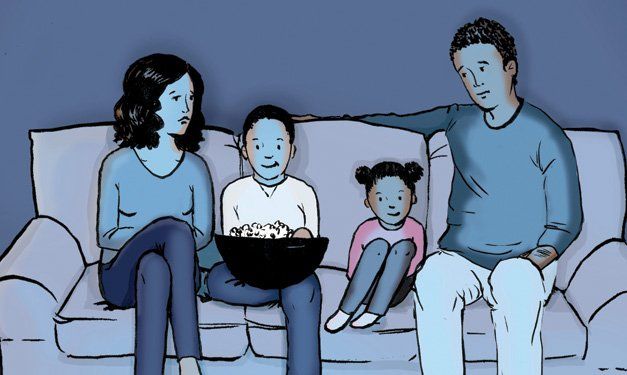
The initiator of a divorce, as a rule, goes through the first stage even before talking about it. His spouse enters the first stage at the time of the announcement of the decision to divorce. It is precisely because partners are often at different stages of coping with loss that during the divorce process it can be so difficult for them to understand and hear each other, to agree on anything. This is important to understand and take into account.
There is no difference between how men and women experience loss. There are very emotional men and very reserved women. Both those and others during this period may try to drown out their grief with alcohol, frequent sexual relations, their behavior may be aggressive or seem inadequate.
Stages of Divorce Living
1. Denial
Spouses at this stage often try to pretend that nothing is happening and continue to communicate as before. At this stage, it is important not to avoid your experiences. They help us soberly assess what is happening.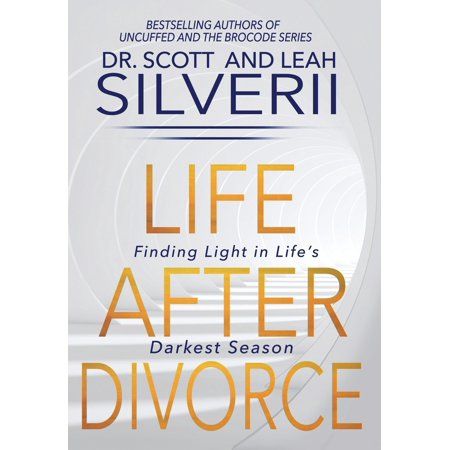 If there is a person in your environment whom you trust (friend, parents), talk to him, tell him about what happened. In a supportive environment, give vent to your feelings, tears.
If there is a person in your environment whom you trust (friend, parents), talk to him, tell him about what happened. In a supportive environment, give vent to your feelings, tears.
At the stage of denial, questions naturally arise: “How could this happen to me?”, “Can I find a person who loves me?”, “Maybe it still forms? Maybe he/she will come back and change his mind?
A person experiences shock, loses support, does not understand what to do and how to live on. He is tormented by pain and fear of separation, loneliness, uncertainty in any future relationship.
2. Anger
Time passes, nothing changes, the spouse does not leave his intention to divorce. Sadness and despair turn into resentment and bitterness: “For what? What did I do / did not do it right? Why did it happen"? Hatred rises towards the initiator of the break: “You left me!” The question "For what?" comes to everyone - it is important at this stage not to get involved in the search for an answer. No answer. A huge number of factors led to what happened. There is no one to blame for what happened - but there is a contribution of everyone, often unconscious.
No answer. A huge number of factors led to what happened. There is no one to blame for what happened - but there is a contribution of everyone, often unconscious.
3. Bargaining
At this stage, there is a desire to return the spouse by any means, to restore relations. A wife can fall in love again with her husband who initiated the divorce, suddenly seeing in his behavior a real masculine act and the ability to make decisions. A husband can recall with emotion the hobbies of his wife that irritated him in marriage, and is even ready to support them, if only she would return.
A shot from the film "Revolutionary Road"
© kinopoisk.ru
The abandoned partner decides to change dramatically, for example, lose weight, stop drinking. During this period, a person is ready to negotiate even with God, even with the devil, turn to psychics, fortune-tellers, astrologers - just to get advice on how to return a spouse. However, before you go to a fortune teller, answer yourself the question - did you feel so good? Why did you decide that upon returning the spouse will become a different person?
“What if I still love him?” - you ask.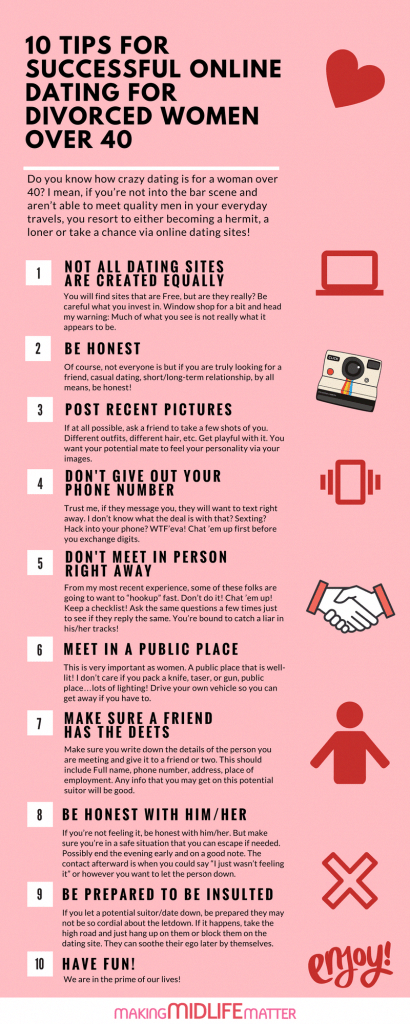 Think about it, is it possible to force a person to love you by force just because you love him? Rather, this idea comes from the parent-child relationship: "Mom loves you, and you? .." Does it follow from the fact that if someone loves you, you must love him a priori? The world is unfair, and it is very painful to realize that your beloved or beloved does not have mutual feelings for you. But the fact remains that we cannot keep a person around against their will.
Think about it, is it possible to force a person to love you by force just because you love him? Rather, this idea comes from the parent-child relationship: "Mom loves you, and you? .." Does it follow from the fact that if someone loves you, you must love him a priori? The world is unfair, and it is very painful to realize that your beloved or beloved does not have mutual feelings for you. But the fact remains that we cannot keep a person around against their will.
4. Depression
When it comes to understanding that everything is in vain, deep disappointment sets in. A feeling of loss covers, sadness appears, a breakdown is felt. At this stage, a person mourns the loss of everything that was dear, that which was hoped for and that did not happen.
Depression is the absence of an impulse to act: if something is not available to me, I don’t want anything! Yes, something is not available, as before, but this does not mean that it is impossible in a new way. Make a list of things you feel sad about, things that weren't available with the divorce, or things that didn't materialize in the old relationship. And look at this list from the other side - now these are your desires and values, based on which you can continue to build your life, start other relationships. Highlighting the important and valuable helps to set new goals.
And look at this list from the other side - now these are your desires and values, based on which you can continue to build your life, start other relationships. Highlighting the important and valuable helps to set new goals.
5. Acceptance
As if waking up from a dream, a person begins to see and share the facts. At this stage, there comes an awareness of one's own contribution to what happened, and the value of all the good things that were experienced and received in marriage, as well as an understanding of needs and opportunities. The desire to live and move on comes, new meanings and goals appear.
The task that stands in this difficult period is to go through all the stages without dwelling on any of them for a long time. On average, this can last from one to three years, or even longer. Be attentive and careful to yourself, ask yourself: “Where am I now? At what stage? How long have I been there?"
If you find yourself unable to get out of difficult experiences on your own, seek the help of a psychotherapist.
How to survive a divorce if you have children or your wife is pregnant?
When a couple has children, both husband and wife can initiate a divorce. If the reasons for the dissolution of a marriage on the part of a woman were the partner’s infidelity, financial instability or lack of income for the spouse, his addictive behavior, domestic violence, and even if the decision was made by the mother out of fear for life and health (her own and children), then she suffers no less than if her husband left her.
In such situations, a woman still feels abandoned, with all the hardships of everyday, financial, parental problems, and the decision to divorce is very difficult. There is always hope that the husband will change - find a job, stop drinking, beat and humiliate, return to the family. One of the typical experiences that a woman may experience during this period is often associated with the belief that no one needs her with children - who will marry her with a child?
Still from the film "Fragments of a Woman"
If a woman is pregnant, what will she live on when the baby is born and she will not be able to work? Or if a woman did not work before the divorce, she took care of the house and children - what will she and the children live on? After all, it takes time to find a job. Sometimes, after a few years of caring for children, a woman loses her skills in her profession. The situation can be aggravated by the behavior of relatives: “If you get married, let your husband feed you!” What to do in such a situation?
Sometimes, after a few years of caring for children, a woman loses her skills in her profession. The situation can be aggravated by the behavior of relatives: “If you get married, let your husband feed you!” What to do in such a situation?
Don't be led by those who think they have to do everything themselves. There is no point in being ashamed or blaming yourself for what happened (“Where did I look when I got married?”, “I gave birth myself - and carry this cross myself”). It is these beliefs that bring the most fear and anxiety. Even if after the breakup of the family, the children remain with their mother, she bears responsibility for their life on a par with her ex-husband, their father.
It is important to keep this in mind and in the process of divorce, start negotiating the conditions for the maintenance of children, and if there are grounds and need for that, also for their mother. Seek help from a mediator, lawyers, psychologists - remember that there are always people who are ready to support you in this difficult period.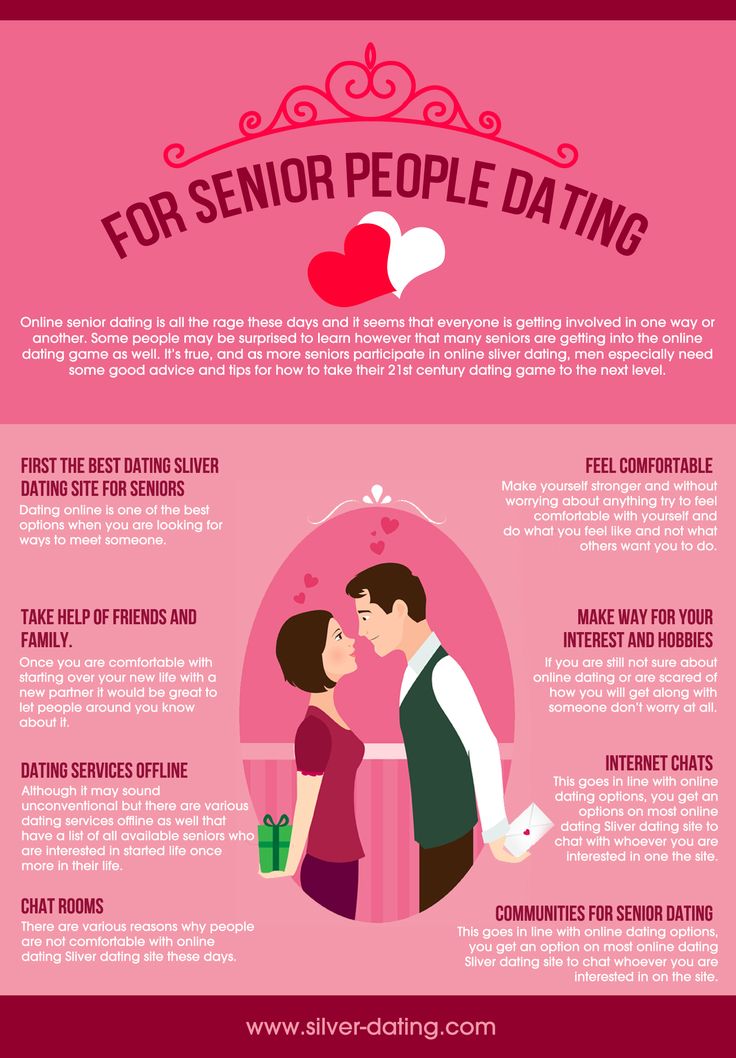 As part of social projects, there are centers for psychological assistance, as well as various services that provide shelter for women with children who have been subjected to violence and are left homeless, helping a woman get a profession, find a job, and arrange children in a kindergarten or school.
As part of social projects, there are centers for psychological assistance, as well as various services that provide shelter for women with children who have been subjected to violence and are left homeless, helping a woman get a profession, find a job, and arrange children in a kindergarten or school.
Unfortunately, it happens that one parent sets the children against the other, does not allow the former spouse to meet with the child in order to take revenge, hurt or gain their own benefit, cope with their own grief. It is worth clearly separating your own needs and desires from the desires and needs of children, so as not to use them as a weapon of revenge or obtaining any benefits that are not legally related to children.
Remember that after a divorce, spouses cease to be husband and wife, but for children they remain mom and dad - divorce does not annul this fact in any way. Children love each parent and need both of them. This will help minimize the negative impact of divorce on the psyche of the child.
Infidelity and divorce
The reason for the divorce is that the spouses cannot get along with each other. A lot of conflicts, quarrels and disagreements alienated them from each other. Cheating, as a rule, is a consequence of the fact that the spouses cannot satisfy all their needs in marriage and decide to compensate for them on the side. At the same time, betrayal can become a strong argument and provoke a decision to divorce.
One of the most painful experiences during betrayal is the feeling of being abandoned, abandoned and, as a result, flawed. Another is the experience of betrayal. The intolerance of a false sense of inferiority can provoke an unreasonable desire to return a spouse.
A shot from the movie "The Squid and the Whale"
The experience of betrayal prompts the decision to divorce. To divorce or not to divorce in case of infidelity? What if the husband or wife left for another partner? This question can be answered only by understanding the reasons that led to the betrayal, and in their own feelings for each other. It is impossible to embrace all the experiences that arise in the spouses in the process of divorce.
It is impossible to embrace all the experiences that arise in the spouses in the process of divorce.
It is important to know that whatever feelings arise, they all take place, and it is also important to give yourself the opportunity to experience them so as not to linger in them. In order to move into the future, it is important to let go of the past.
What books will help you get over a divorce
K. Whitaker. "Family in Crisis"
If a person has psychological difficulties, it is worth, first of all, turning to his family history - it is likely that it is there that both the root of the problem and its solution will be found, Carl Whitaker, an American psychiatrist of the middle XX century. Using the example of working with one family, the author introduces us to the basics of the method of therapy developed by him and analyzes the psychological mechanisms of interaction between relatives. This book, written by one of the founders of family therapy, has been a bestseller for more than a quarter of a century.
© litres
A. Kurpatov. “7 real stories. How to Survive a Divorce”
Based on the real stories of seven women, a well-known psychotherapist tells what happens to the psyche during a divorce and how you can help yourself overcome this test quickly and with possible benefit for yourself.
© litres
S. K. Nartova-Bochaver, M. I. Nesmeyanova, N. V. Malyarova, and E. A. Mukhortova. “The Child on the Divorce Carousel”
The authors — a psychologist, sociologist, philosopher and psychotherapist — created a kind of guide to situations that arise in a family after a divorce, and paid special attention to communication between parents and a child. The book includes non-fiction material, real stories and practical advice to help you make decisions that are right for your family.
© litres
M. Travkova. "Infidelity. Why do loved ones cheat, is it worth forgiving, is it possible to avoid?
Why do people decide to cheat, while realizing that this can hurt another and destroy a marriage? From the book it becomes clear the role of both partners in the occurrence of such situations.





